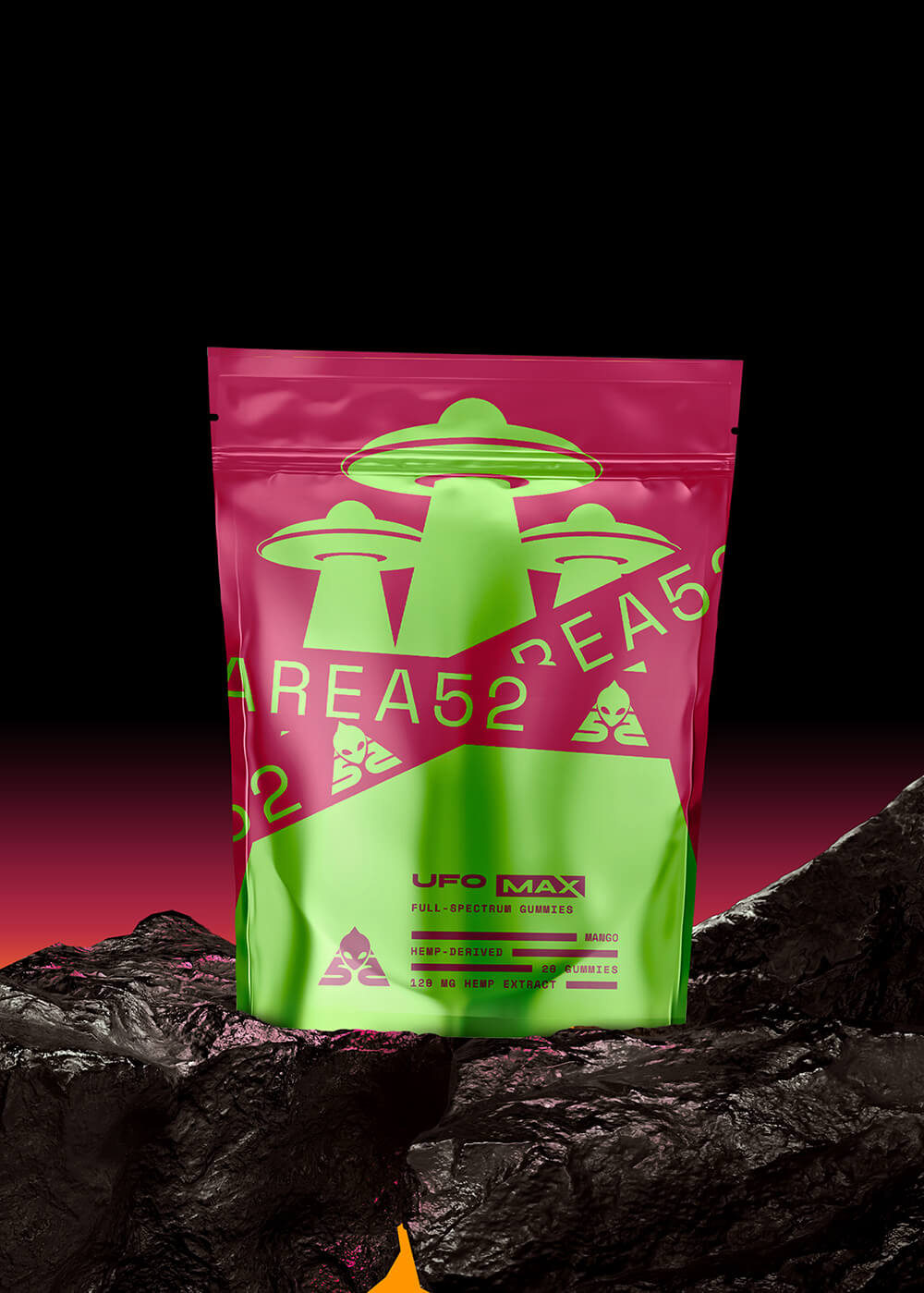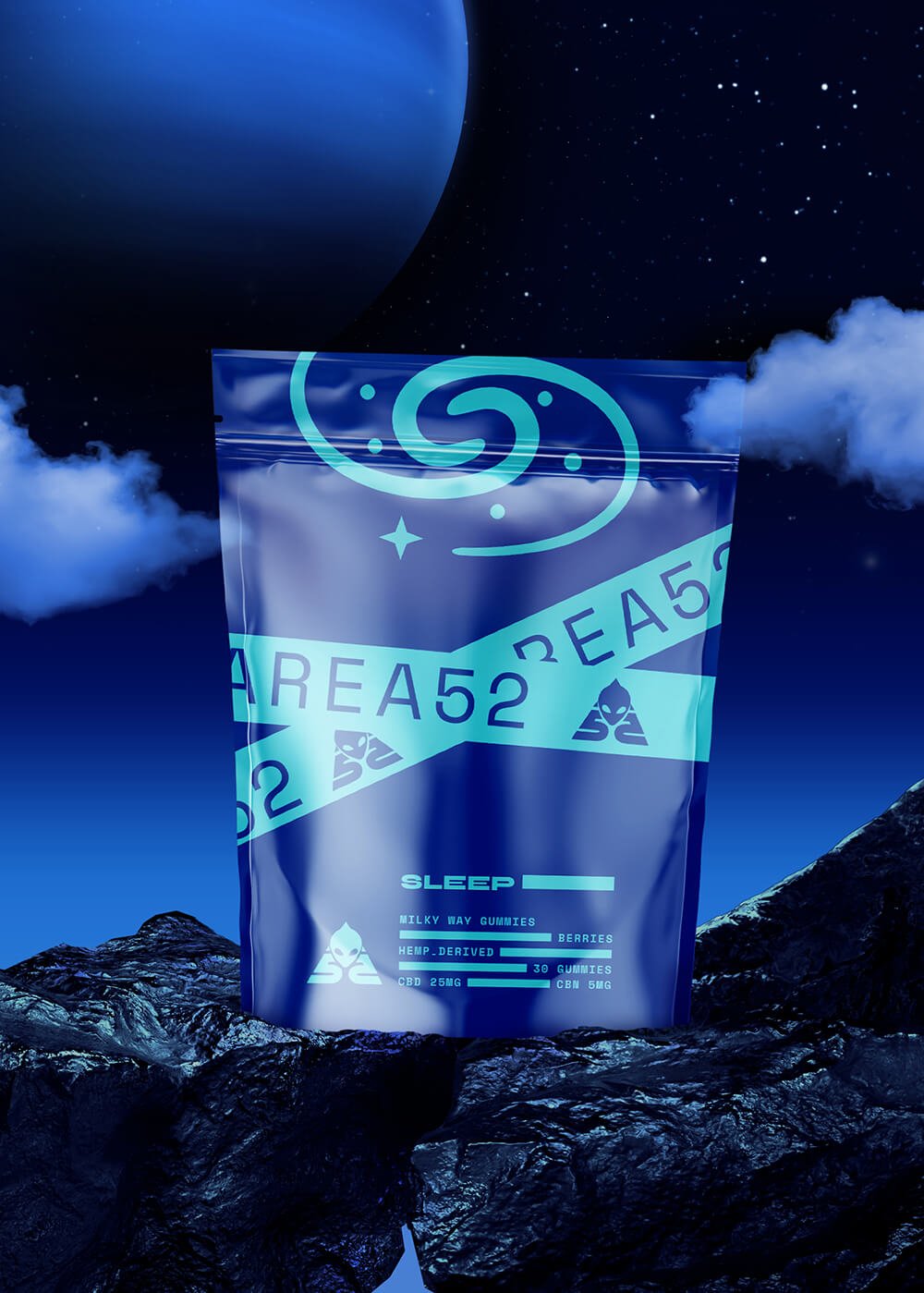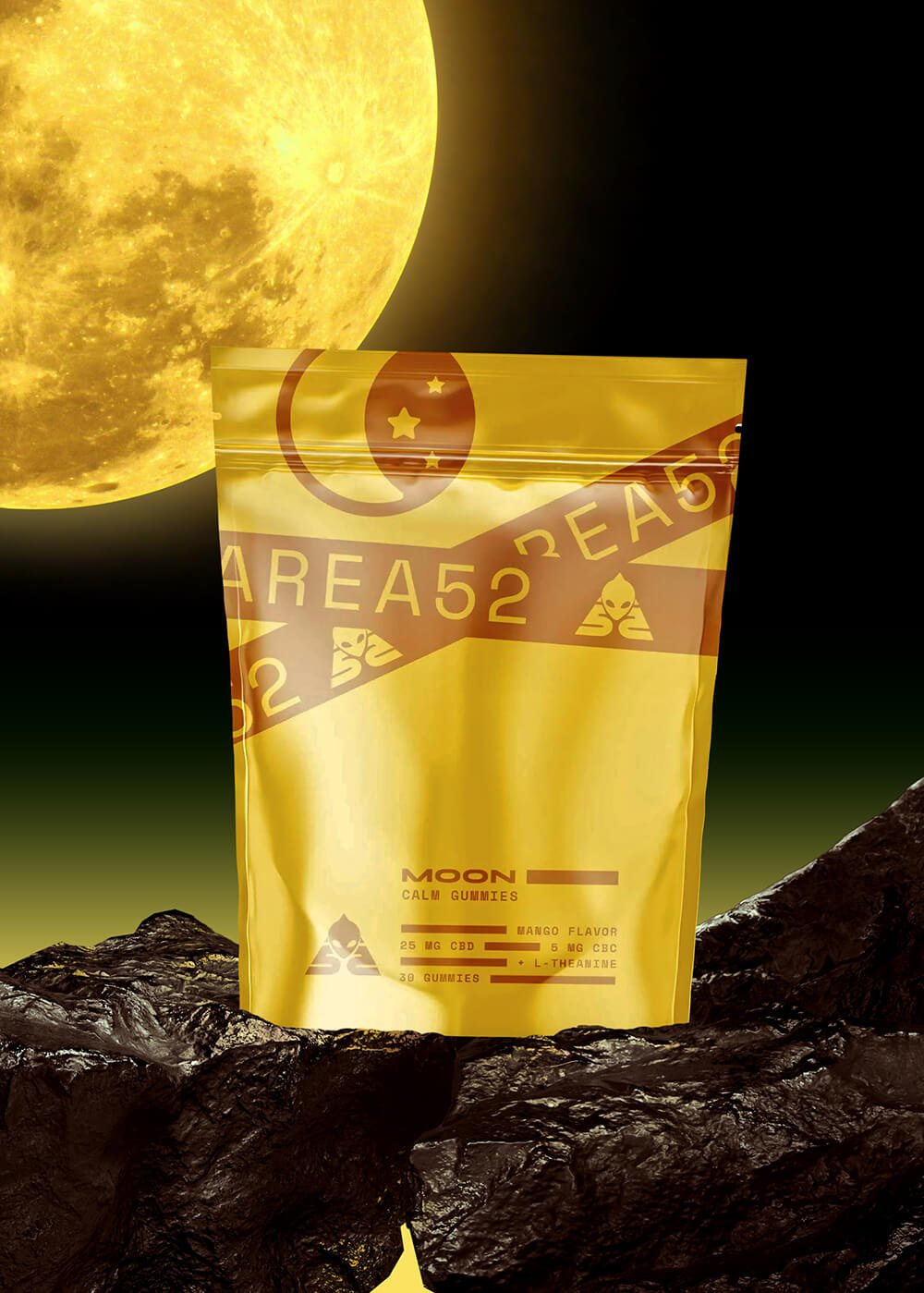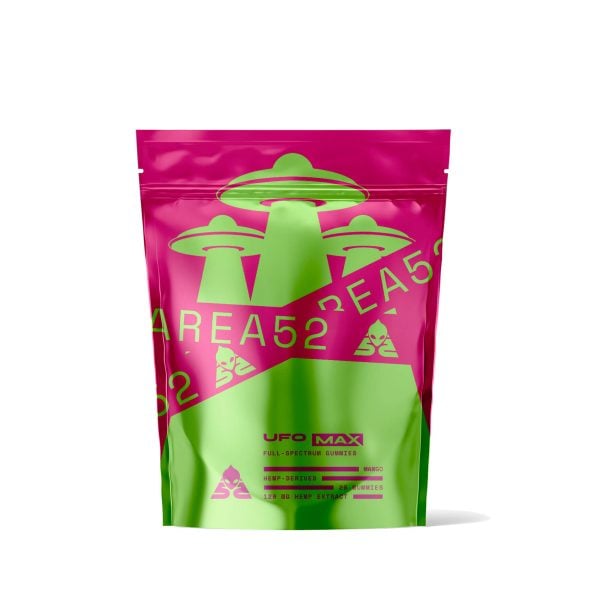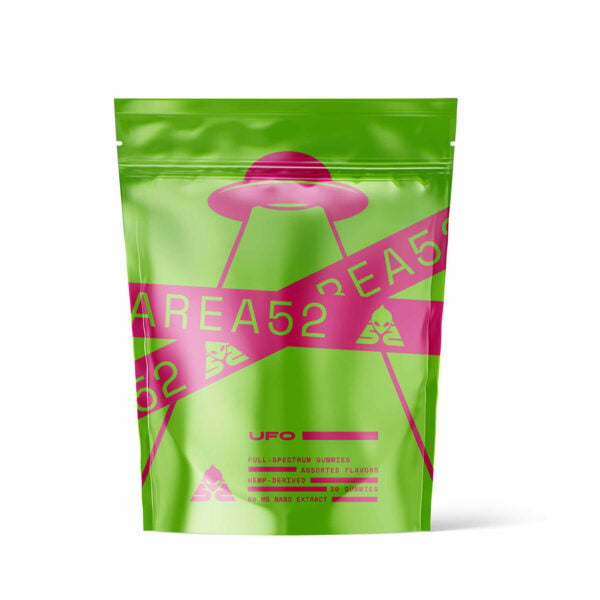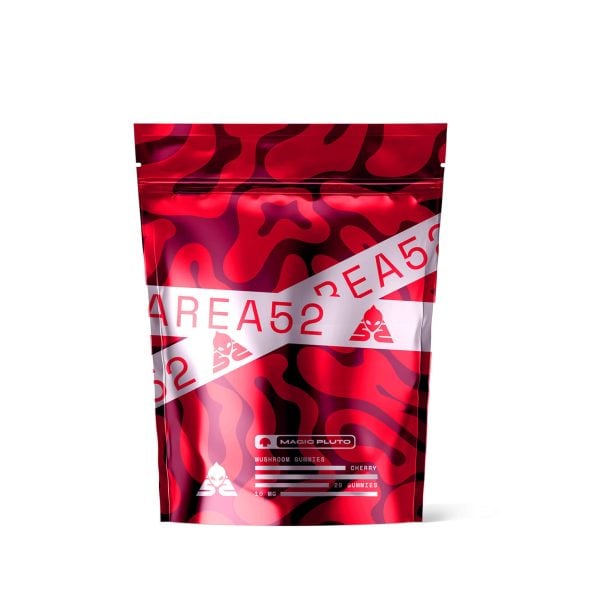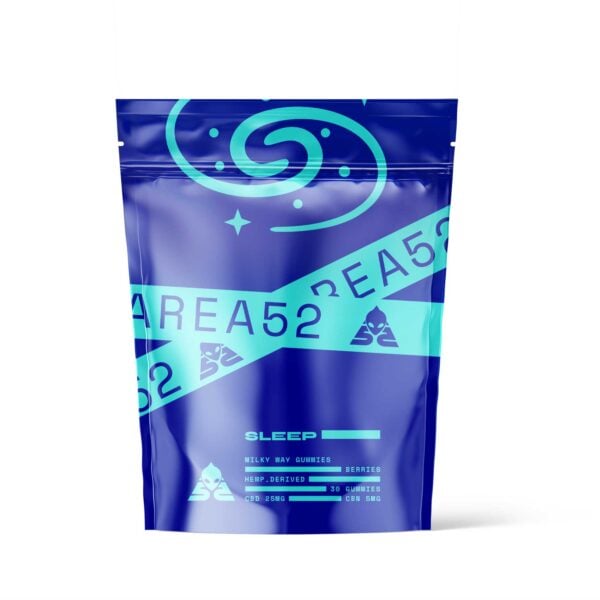Does CBG Cause the Munchies?
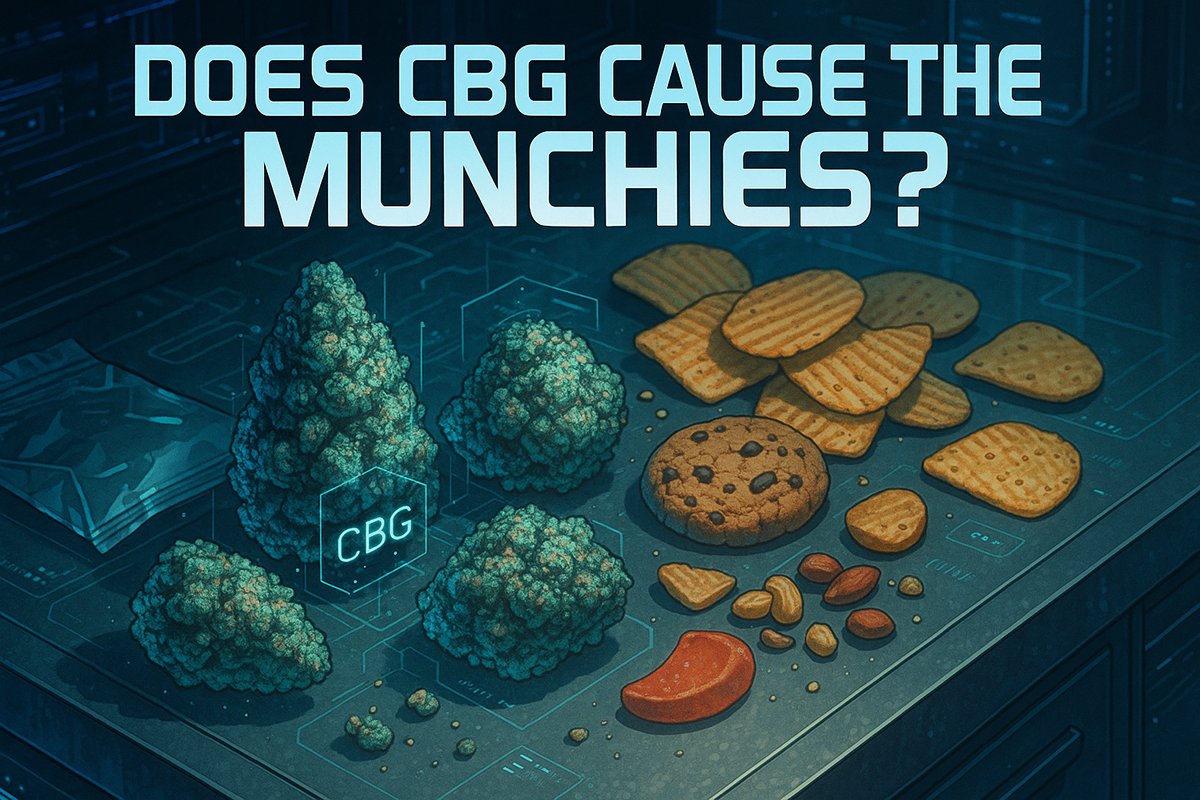
Most people are familiar with the two most prominent cannabinoids in cannabis: tetrahydrocannabinol (THC) and cannabidiol (CBD).
Far fewer people know about cannabigerol (CBG), another natural cannabinoid abundant in juvenile hemp flowers.
In this article, you’ll learn what CBG is and what effect it has on appetite stimulation, according to the most current research.
Note: We lack clinical trials on CBG and its effects on managing appetite loss or boosting it, so the information contained below is merely theoretical based on the evidence currently available through scientific studies. These scientific studies investigated CBG’s potential health benefits, including its effects on appetite regulation and chronic pain.
Interested in trying CBG? Check out our new Mars Energy Gummies.
First Of All, What Is CBG?
Cannabigerol (CBG) is a phytocannabinoid, meaning it’s a naturally occurring cannabinoid in cannabis plants.
It’s commonly referred to as the “mother of all cannabinoids” because it’s one of the first cannabinoids to appear as the plant develops. CBG later breaks down into other common cannabinoids as the plants mature, including delta 9 THC (commonly just called “THC”), CBD, CBC, and others.
How Does CBG Interact With the Body?
Like most cannabinoids, CBG interacts with the body via a signaling system called ECS (endocannabinoid system), a series of cannabinoid receptors to which the compounds bind to and alter in different ways.
Specifically, we all have CB1 and CB2 receptors in our endocannabinoid systems, and CBG is known to bind directly to both.
Does CBG Affect Our Desire to Eat?
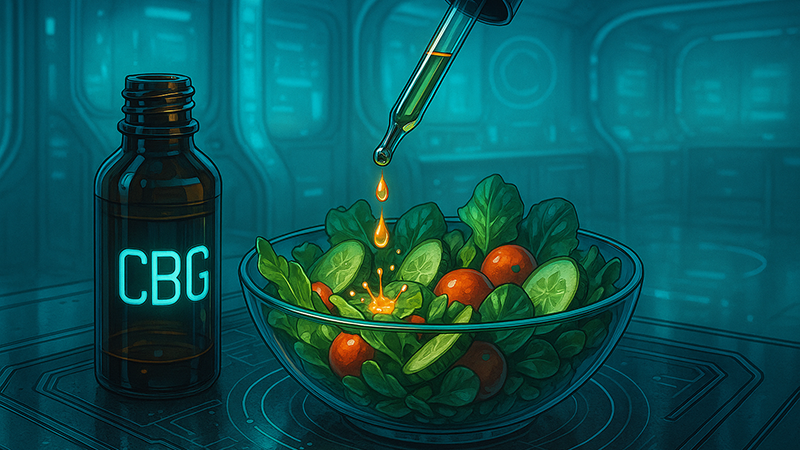
Yes, anecdotal reports suggest CBG is not like many other cannabinoids and does not cause the “munchies” or stimulate appetite. Instead of increased food intake, CBG tends to cause the user to have less desire to eat while under the influence. Preliminary scientific research involving animals on this CBG therapeutic potential supports this hypothesis. Do note though that the FDA has not approved the use of CBG for appetite.
Because of this, many people wonder if CBG could help with their diet program the natural way and reduce food consumption. There are no conclusive studies linking any cannabinoid with weight loss. Many experts theorize how compounds like CBG could be useful in a well-orchestrated, holistic lifestyle. Diet and exercise are the most important variables when it comes to weight loss. Unfortunately, cannabinoids are not a quick fix.
If you’re looking to lose weight, here are the factors associated with weight loss:
1. Lipogenesis
Lipogenesis is the process by which our bodies store excess energy as fat. When we consume more calories than our bodies need to function, the surplus is converted into fat and stored in adipose tissue throughout the body for later consumption if caloric intake decreases.
2. Metabolism
Metabolism refers to our capacity to convert stored energy in the form of sugars and fats into useable cellular energy such as ATP. Increasing metabolism through diet, exercise, and supplementation is one method medical professionals use to help patients lose weight.
3. Stress & Cortisol
There has long been a correlation between stress levels and obesity or weight gain. Stress tends to cause people to turn to food for comfort and might even lead an otherwise healthy individual to turn to fatty or unhealthy foods to relieve some of the stress.
Wrapping Up: CBG & Food
Cannabigerol (CBG) is a naturally occurring cannabinoid that appears primarily in young cannabis plants. It eventually breaks down to form THC, CBD, and other common cannabinoids in mature marijuana and hemp plants.
CBG is believed to not cause the “munchies,” or the desire to snack. In fact, it might take your mind off of food for a little bit — this goes in direct opposition to the classic experience of taking other cannabinoids. Even so, if you’re looking to lose weight, stick with a lifestyle change for guaranteed results.
FAQ: Does CBG Affect Appetite?
Want to understand CBG more? We’ve prepared this FAQ to help you learn more about CBG’s significant effects on our overall health and how to take it.
1. Do Cannabinoids Affect Your Appetite?
Yes. One of the functions of the ECS is to regulate appetite, and cannabinoids are known to affect this biological function. THC, in particular, increases appetite.
CBD, on the other hand, has more modest effects on appetite, with early studies showing it has a suppressive action.
2. Which Cannabinoid Stimulates Appetite?
THC and its isomers like delta 8 and delta 10 can increase appetite even at low doses. These cannabinoids act on the CB1 receptor, the cannabinoid receptor that’s known to boost appetite.
On the other hand, both CBG and CBD as well as THCV can suppress appetite since they have an opposite effect on the CB1 receptor.
3. Does CBG Affect Your Appetite?
Unlike THC, CBG suppresses appetite. However, studies suggest CBG has appetite stimulating effects at higher doses, increasing meal frequency and intake.
4. Does CBG Help with Digestion?
In addition to its ability to suppress appetite, early research on CBG reported it may also benefit the digestive system through its antibacterial effects as well as anti-inflammatory properties, both of which may help with digestion.
5. What Effect Does CBG Have?
In addition to its effects on appetite, some of the other potential benefits of CBG include analgesic effects and sedative effects. According to the International Cannabinoid Research Society, CBG may also have anti-depressant properties as seen in animal models.
6. Does CBG Really Work?
A present study shows CBG may help with anxiety and stress as well as boost memory. It may also help with chronic pain, insomnia, and depression. CBG also helps protect the immune system as well as the brain cells of the nervous system.
Do note though that we need more research to better understand how CBG works on our body and health.
7. Can You Take CBG Daily?
Yes, you can take CBG daily. You’ll find many types of CBG products on the market, such as CBG oil, tincture, capsule form, and even cream.
Note though that CBG won’t get you high and isn’t usually used for recreational purposes.
8. How Much CBG is Effective?
It’s recommended to take at least 1 mg of CBG per 10 lbs of body weight. For example, you weigh 150 lbs, then you need around 15 mg of CBG daily.
If you’re new to CBG though, you may start with a low dose of 5 mg of CBG a day, gradually adjusting the dose until you find your sweet spot.
9. How Quickly Does CBG Work?
It depends on the CBG administration or method of cannabis consumption. In healthy adults, oral administration, like edibles and gummies, takes a while to kick in, about 30 minutes to a couple of hours.
Oils and tinctures usually take effect under 15 minutes, while inhalable products like vapes and flowers kick in in less than 10 minutes.
10. What Happens If I Take Too Much CBG?
Taking too much CBG may cause dry eyes and dry mouth sensation. It can also make you feel sleepy and stimulate your appetite.
Resources Used:
- Navarro, G., Varani, K., Reyes-Resina, I., Sánchez de Medina, V., Rivas-Santisteban, R., Sanchez-Carnerero Callado, C., … & Franco, R. (2018). Cannabigerol action at cannabinoid CB1 and CB2 receptors and at CB1–CB2 heteroreceptor complexes. Frontiers in pharmacology, 9, 632.
- Brierley, D. I., Samuels, J., Duncan, M., Whalley, B. J., & Williams, C. M. (2016). Cannabigerol is a novel, well-tolerated appetite stimulant in pre-satiated rats. Psychopharmacology, 233(19), 3603-3613.
- Kirkham, T. C. (2009). Cannabinoids and appetite: food craving and food pleasure. International Review of Psychiatry, 21(2), 163-171.
- Sansone, R. A., & Sansone, L. A. (2014). Marijuana and body weight. Innovations in Clinical Neuroscience, 11(7-8), 50.
- De Petrocellis, L., Ligresti, A., Moriello, A. S., Allarà, M., Bisogno, T., Petrosino, S., … & Di Marzo, V. (2011). Effects of cannabinoids and cannabinoid‐enriched cannabis extracts on TRP channels and endocannabinoid metabolic enzymes. British journal of pharmacology, 163(7), 1479-1494.
- Bielawiec, P., Harasim-Symbor, E., & Chabowski, A. (2020). Phytocannabinoids: useful drugs for the treatment of obesity? Special focus on Cannabidiol. Frontiers in endocrinology, 11, 114.
- El-Alfy, A. T., Ivey, K., Robinson, K., Ahmed, S., Radwan, M., Slade, D., … & Ross, S. (2010). Antidepressant-like effect of Δ9-tetrahydrocannabinol and other cannabinoids isolated from Cannabis sativa L. Pharmacology Biochemistry and Behavior, 95(4), 434-442.
- Komorowski, J., & Stepień, H. (2007). The role of the endocannabinoid system in the regulation of endocrine function and in the control of energy balance in humans. Postepy higieny i medycyny doswiadczalnej (Online), 61, 99-105.
- Borrelli, F., Fasolino, I., Romano, B., Capasso, R., Maiello, F., Coppola, D., … & Izzo, A. A. (2013). Beneficial effect of the non-psychotropic plant cannabinoid cannabigerol on experimental inflammatory bowel disease. Biochemical pharmacology, 85(9), 1306-1316.
- Nadolska, K., & Goś, R. (2008). Possibilities of applying cannabinoids’ in the treatment of glaucoma. Klinika oczna, 110(7-9), 314-317.
- Valdeolivas, S., Navarrete, C., Cantarero, I., Bellido, M. L., Muñoz, E., & Sagredo, O. (2015). Neuroprotective properties of cannabigerol in Huntington’s disease: studies in R6/2 mice and 3-nitropropionate-lesioned mice. Neurotherapeutics, 12(1), 185-199.
- Borrelli, F., Pagano, E., Romano, B., Panzera, S., Maiello, F., Coppola, D., … & Izzo, A. A. (2014). Colon carcinogenesis is inhibited by the TRPM8 antagonist cannabigerol, a Cannabis-derived non-psychotropic cannabinoid. Carcinogenesis, 35(12), 2787-2797.
- Ignatowska-Jankowska, B., Jankowski, M. M., & Swiergiel, A. H. (2011). Cannabidiol decreases body weight gain in rats: involvement of CB2 receptors. Neuroscience letters, 490(1), 82-84.
- Avraham, Y., Ben-Shushan, D., Breuer, A., Zolotarev, O., Okon, A., Fink, N., … & Berry, E. M. (2004). Very low doses of Δ8-THC increase food consumption and alter neurotransmitter levels following weight loss. Pharmacology Biochemistry and Behavior, 77(4), 675-684.
